In the April 30, 2019 Ask The Headhunter Newsletter a reader questions a CEO’s advice about interviewing.
Question
I just read an article where a CEO warns that it’s unethical and dishonest to keep interviewing after you’ve accepted a job offer. “It’s not cool.” He calls it lying and says you’re just damaging yourself! Moreover, you’re causing damage to the company because it stopped recruiting after it hired you, and having to restart recruiting will cost it a lot of time and money. So you should behave with “class and grace.” Then he drops the bomb: It’s “all Millennials” doing this — ghosting employers. (I’m 29 years old so I guess he’s talking to me.) Is it so wrong to keep interviewing or to take a better offer if it comes along?
Nick’s Reply
You should absolutely continue interviewing with no qualms whatsoever.
I think that CEO is 100% wrong when he suggests that if you continue to interview for other jobs after you have already accepted an offer, you’re being “unethical,” “dishonest,” or “damaging yourself.” That’s nonsense. Hedging your bets is simply prudent business.
Interviewing? Hedge your bets.
As for the CEO’s contention that the company stopped recruiting after it “hired” you, that’s pure bunk. I started headhunting a long time ago and I can tell you that a Human Resources department (HR) will probably routinely continue interviewing more candidates not only after it makes you an offer, but after you accept it, and — often — after you’ve started the job.
Why would HR do that? To hedge its bets.
For example:
- HR might give you that verbal offer, then run a background check and decide it doesn’t like what it found — even if it’s a minor problem that it never discloses to you. The offer you accepted is rescinded without explanation. (Don’t believe me? See Behind the scenes of a rescinded job offer.)
- While HR obtains the necessary signatures to complete the hiring process, some manager might change their mind about you, or funding for the job could be cut. (I’ve seen both happen many times.) There will be no written offer. Or, your written offer will be cancelled. Because employment is “at will” in most U.S. states, you can be terminated at any time, for any reason or no reason — including on day #1. Now you’re on the street. “It’s not personal.” (See Protect yourself from exploding job offers.)
- HR worries that you might change your mind — just like it might change its mind — and wants to have one or more backup candidates. You’ve probably already experienced this, when an employer tells you you’re a finalist and that it will “get back to you” in a week — then they keep delaying. They may be “keeping you warm” until they are sure their #1 candidate actually shows up for work. (That means you may still get the job.) Some employers will even issue multiple offers to ensure they get one viable hire. You’ll never know.
- HR believes it might find a better candidate while your offer and hire are being processed — because it’s got several more impressive resumes to work through but is trying to stick to a deadline. HR will have no qualms about telling you “something has changed and we will not be able to proceed.” Meanwhile, you may have already resigned your old job. (See Quit, Fired, Downsized: Leave on your own terms.) HR will tell you, “It’s nothing personal, just business.” Unless you’re willing to hire a lawyer, you probably have no recourse.
Interviewing: The double standard
More obviously — and I’m sure you’ve encountered this many times — while that CEO calls you “dishonest,” his HR office will leave a job posting up long after the job is filled. It’s “ethical” when he’s hedging, but you’re “lying.” It’s a double standard that employers use to gain an edge.
When you continue interviewing after accepting an offer — even if it’s in writing — you’re being prudent, not dishonest or unethical. Unless you sign an agreement to the contrary, what you’re doing while you wait to start the job is no one’s business but yours.
Should you be cavalier about it? Of course not. Act as responsibly as possible. But play your cards close, keep your options open, and continue to develop your alternatives. Always hedge your bets — just like the employer is doing.
Is this business or is it ghosting?
As for the CEO’s suggestion that if you back out, the employer will have to restart its search, costing time and money, that’s true only if they’re inept. What company doesn’t plan for contingencies in the event a deal goes south?
Any good headhunter can share stories about “fall offs” — people who accept jobs then quickly quit or get terminated for any of a number of reasons. Every good headhunter (and employer) has a backup candidate ready to fill that job. It’s not unethical. It’s prudent business.
Worried about being accused of “ghosting?” The employer should be worried about its own ghosting behavior — every time it interviews a candidate, promises a decision, but then ignores you completely. See Ghosting: Job candidates turn tables on employers.
Anything can go wrong
I understand that CEO’s perspective. It’s self-serving, and there’s nothing wrong with that. But if you, as a job seeker, take his advice at face value, you’re not serving yourself best in a highly competitive hiring market where too many employers demonstrate an astonishing and callous disregard for job seekers. Let the CEO think like an employer. You should think like a job seeker.
Just like an employer keeps other candidates on the hook until a new hire actually shows up for work, you’d be wise to keep working on other job opportunities until you are firmly ensconced in your new job. You are absolutely right. Anything can go wrong. And that’s why the company that “hired” you is likely to continue recruiting and interviewing other candidates while your “hire” is being processed. (Many readers have complained about companies that make job offers then withdraw them. In that case, the company doesn’t “fire” them — because they’re not yet employees!)
Who’s not cool?
Now I’ll tell you what really troubles me: That CEO is “not cool” when he makes generalizations and reveals blatant bias against your cohort. Millennials are no more likely to ghost employers than CEOs are likely to pontificate about right and wrong like sanctimonious jerks.
You can behave with class and integrity — and still protect yourself. Keep interviewing if you want to, until you’re actually on the payroll at your new job. It’s good business. I’ve seen countless people stranded without jobs because they didn’t understand that employers hedge their bets during the hiring process every day.
Knowing what to do when you get a job offer is just one of many ways to have an insider’s edge when job hunting. For more tips, see Ask The Headhunter Secrets in a Nutshell.
Is it unethical or dishonest — or not cool — to continue your job search after you’ve accepted a job offer? Should you trust that you can take a job offer to the bank? And even if the job offer is bona fide, is that any reason not to hedge your bets to ensure you get the best deal possible?
: :



 Question
Question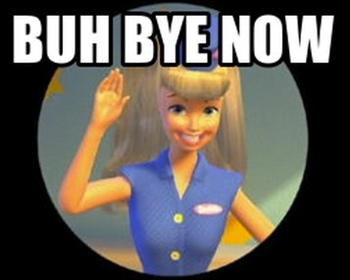
 Question
Question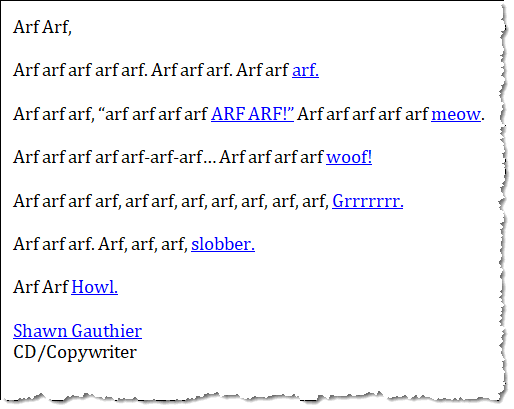
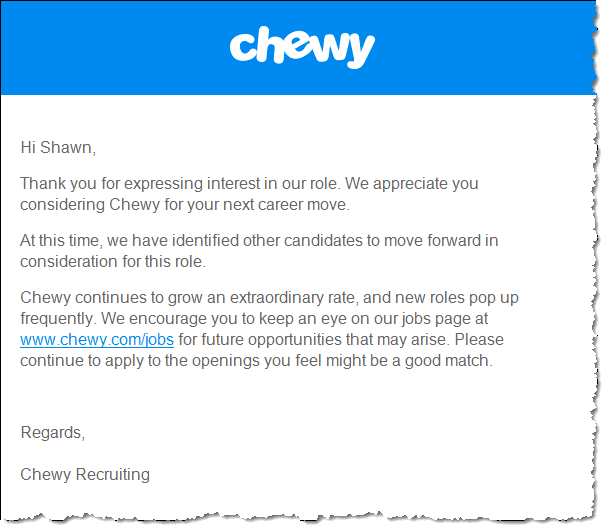
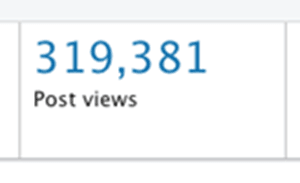



 Indeed.com – what a joke! The first time we used Indeed was last year. We got scads of applications and scheduled four interviews. One candidate showed. The rest were all no-shows. Fortunately, we got really lucky and hired the one person who showed up. To be fair, for another job we scheduled four interviews and only one was a no-call, no-show.
Indeed.com – what a joke! The first time we used Indeed was last year. We got scads of applications and scheduled four interviews. One candidate showed. The rest were all no-shows. Fortunately, we got really lucky and hired the one person who showed up. To be fair, for another job we scheduled four interviews and only one was a no-call, no-show.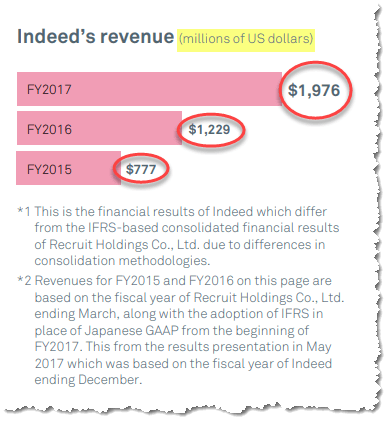
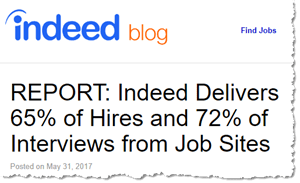
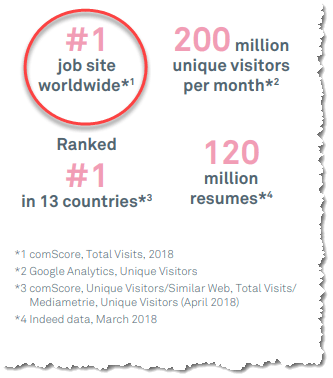
 The quality of the data currently found within ALL ATSs [Applicant Tracking Systems] is still, and especially today, too ugly to use for effective decision making. Vendors who bolt on other solutions to cherry pick internet candidate movement collect equally flawed data. They [mostly] embarrass themselves with their hype over their claims to be measuring ‘best source of hire data’.
The quality of the data currently found within ALL ATSs [Applicant Tracking Systems] is still, and especially today, too ugly to use for effective decision making. Vendors who bolt on other solutions to cherry pick internet candidate movement collect equally flawed data. They [mostly] embarrass themselves with their hype over their claims to be measuring ‘best source of hire data’. In the
In the 
 Only if money is your prime motivator. If it is, go for it. Of course, without any other information, I can’t really give you very thoughtful advice. But in general, this is a scenario that people sometimes face, so let’s deal with it generally.
Only if money is your prime motivator. If it is, go for it. Of course, without any other information, I can’t really give you very thoughtful advice. But in general, this is a scenario that people sometimes face, so let’s deal with it generally. I’m a hiring manager in engineering and have benefited greatly from your articles as both someone looking to hire talent and as a potential employee. (Most recently:
I’m a hiring manager in engineering and have benefited greatly from your articles as both someone looking to hire talent and as a potential employee. (Most recently:  Nick’s Reply
Nick’s Reply
